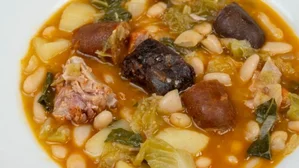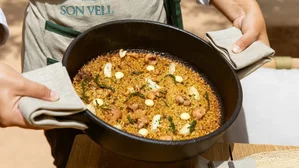The Rising Cost of Gluten-Free Roscón de Reyes: A Holiday Conundrum for Expats in Spain

As the festive season reaches its peak in Spain, the traditional Roscón de Reyes remains a centerpiece of celebrations, especially on the Feast of Epiphany on January 6. However, for those with dietary restrictions, the quest for a gluten-free version of this beloved pastry has become increasingly costly.
The Tradition of Roscón de Reyes
Roscón de Reyes, a sweet bread adorned with candied fruits and often filled with cream or chocolate, is a staple of Spanish holiday traditions. Originating from ancient Roman festivals, this pastry has evolved over centuries and is now a symbol of abundance and celebration. The tradition includes hiding a small figurine and a dry bean inside the Roscón, with the person finding the figurine crowned king or queen for the day, and the one finding the bean expected to buy next year’s Roscón[2].
The Gluten-Free Dilemma
For expats and locals alike who follow a gluten-free diet, the joy of participating in this tradition comes with a significant price tag. Recent reports indicate that gluten-free Roscón de Reyes are approximately 17% more expensive than their traditional counterparts. This increase is attributed to the higher cost of gluten-free ingredients and the specialized production processes involved[1][2].
Market Insights and Consumer Preferences
The demand for gluten-free products has been on the rise, reflecting a broader trend towards health-conscious food choices. According to the Organization of Consumers and Users (OCU), only a fraction of the Roscón de Reyes available in supermarkets meet the quality standards, with many compromising on traditional ingredients to cut costs. For those seeking gluten-free options, this means not only a higher price but also a careful scrutiny of ingredients to ensure authenticity and quality[1][2].
Top Recommendations for Gluten-Free Roscón
While the market may be limited, several bakeries and supermarkets are stepping up to meet the demand for high-quality gluten-free Roscón de Reyes. Here are a few top recommendations:
- Elin (Almansa, Albacete): Known for their traditional Roscón made with natural ingredients, Elin also offers gluten-free versions that maintain the rich flavor and texture of the original[3].
- Lidl’s La Cestera: While not exclusively gluten-free, Lidl’s offerings are often praised for their good balance of taste and quality, and some locations may provide gluten-free alternatives upon request[1][2].
- Artisanal Bakeries: Local bakeries, such as those in Bilbao like Don Manuel and Pastelería Suiza, are also experimenting with gluten-free recipes, ensuring that the traditional taste is not compromised[3].
Future Trends and Innovations
As consumer preferences continue to evolve, bakers are innovating to cater to diverse dietary needs. Besides gluten-free options, vegan and gourmet versions of Roscón de Reyes are emerging, making the festive season more inclusive for all. The use of social media by artisanal bakeries to showcase their creations is also driving a trend towards more authentic and high-quality products[2].
Conclusion
For expats in Spain, the Roscón de Reyes is more than just a pastry; it is a way to connect with the local culture and traditions. While the cost of gluten-free options may be higher, the effort to find a high-quality, authentic gluten-free Roscón de Reyes is well worth it. As you celebrate the Feast of Epiphany, remember to check the ingredients, support local bakeries, and enjoy the rich heritage that this festive treat embodies.
Related Stories

Discovering the Flavors of Cantabria: The Cocido Montañés
Explore the heart of Cantabria's culinary heritage with the cocido montañés, a traditional stew that's a staple of local cuisine and a symbol of regional identity.

Spanish Dining Preferences: Quality of Rice Tops the List for Restaurant Choices
79% of Spaniards prioritize rice quality in restaurants, underscoring its pivotal role in Spanish cuisine and dining preferences.

Spain Boasts the World's Best Hamburger, and You Can Try It in Valencia or Madrid
Spain's culinary scene shines as a local hamburger is crowned the world's best, available in Valencia and Madrid. A must-try for food enthusiasts and expats alike.

Warning for Air Fryer Users in Spain: What Not to Do
Air fryer popularity in Spain comes with a crucial warning for users. Learn the common mistakes to avoid for safe and effective cooking.

Cantabrians: The Least Adventurous Spaniards When It Comes to Trying Beers
Study reveals Cantabrians are Spain's least adventurous beer tasters, yet hold a deep knowledge of traditional varieties, reflecting a unique cultural insight.